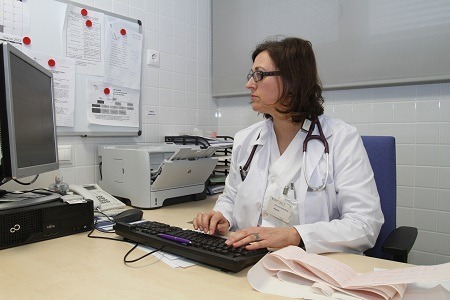
A study coordinated by José Fernández Sáez, researcher at the Terres de l’Ebre Research Support Unit of the Jordi Gol i Gurina Primary Care Research Institute (IDIAPJGol), estimates that temporary work disabilities related to mental health during the COVID-19 pandemic cost €59.2 million. Catalonia was the autonomous community with the highest expenses.
Published recently in the journal Healthcare, the study examines the economic and occupational impact of mental health–related sick leave in Spain from 2020 to 2022. Seventy-six percent of the total cost during this period (€44.8 million) was recorded in 2020; 22 percent (€13.3 million) in 2021; and the remaining 2 percent (€1.1 million) in 2022.
This post-peak decline in mental health–related work disabilities “suggests a gradual adaptation to the working conditions adopted during 2021 and 2022,” the authors note.
Gender differences
The research reveals significant gender disparities. In 2020 and 2021, over 60 %of lost workdays due to mental health leave were taken by women, and 40 % by men.
Generalized anxiety disorders accounted for the highest number of sick-leave days, although their share fell from 22 % in 2021 to 13 % in 2022. Other conditions, such as major depression and adjustment disorders with conduct disturbance, remained relatively stable over the study period.
Impact on highly interactive sectors
According to the study, the most affected sectors involve intensive social interaction: retail (especially textiles, clothing, footwear, and cosmetics), eldercare in residential homes, general retail outlets, and call-center operations. Other sectors with high rates of mental health–related leave included pharmaceuticals, healthcare, education, public administration, and cleaning services.
Based on these findings, the authors urge “strengthening collaboration among healthcare providers, mutual insurance companies, and employers; implementing fair wage policies; creating more flexible work environments; and offering evidence-based psychosocial support to reduce the economic impact of work-related mental disorders and promote sustainable workplace well-being.”
Study reference
Gutiérrez Naharro EM, Ponce Blandón JA, Sillero Sillero A, Fernández Sáez J. The Economic and Occupational Impact of Mental Health-Related Temporary Work Disabilities in Spanish Workers During and After the COVID-19 Pandemic: A Longitudinal Study. Healthcare (Basel). 2025 Mar 13;13(6):618. doi: 10.3390/healthcare13060618. PMID: 40150468; PMCID: PMC11941874.